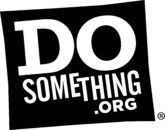
October 26, 2021 [NEW YORK] – Within the first month of launching its new civic tool, Snapchat’s Run for Office Mini feature saw over 2 million Snapchatters in the United States explore opportunities to run for elected office in their local communities.
Snapchat’s in-app Run for Office program, featured on NBC’s TODAY Show, aims to bring more young people into the extensive candidate recruitment and training programs. Contrary to popular narratives, we know Gen Z aren’t just performative about social causes — in the 2020 election, this generation voted at historic levels, in large part because they wanted to make a difference in their local communities.
Despite this historic level of youth civic engagement in recent elections, younger generations remain underrepresented in local, state, and federal government. Given Snapchat’s reach – 90% among 13-24 year olds in the U.S – Snapchat’s new tool helps normalize the conversation around running for office among future leaders.
“I dare to say that Generation Z is the most involved politically and 100 percent ready generation to create change,” said Trinity Sanders, a high school student from upstate New York who plans to run for U.S. Senate after attending college and law school. “I think we are to the point where we are ready to run. Once we become of age, we’ll be the first ones in office.”
More than 50,000 users have used the in-app feature to nominate a friend or have sent the Run for Office mini to a friend since it’s launch on October 5, 2021. Snapchatters across the U.S. have expressed Civil Rights, Education, Environment, Healthcare and Jobs as the top five issues they care about. With roughly 70% of races in 2020 having gone uncontested, Snapchat’s new civic tool provides education and resources about critical, upcoming races and ways Snapchatters can join the conversation.
“One of the things that I love about the youngest generation of voters, especially when it comes to running for office, being politically engaged, making their voices heard, is that they’re not asking for permission, that they are just doing it,” said A’Shanti Gholar of Emerge, a group working to elect Democratic women.
“We hope launching the ‘Run for Office’ mini changes the idea of who can be in office — that no matter who you are, where you come from, that you can make a difference in your local community by running for office based on the issues they care most about,’ said Sofia Gross, Head of Policy Partnerships and Social Impact. “As a platform where young people come to chat with their closest friends, Snapchat has an important role to play in normalizing the conversation around pursuing elected office. We view this as a long term investment in the next generation of American leadership, starting at the local level. We want to help shape a more reflective and equitable democracy for all Americans, and that includes the Snapchat Generation — we can’t wait to see all they will do.”
For more information, visit https://newsroom.snap.com/run-for-office/ or contact caitlin@rokksolutions.com.


